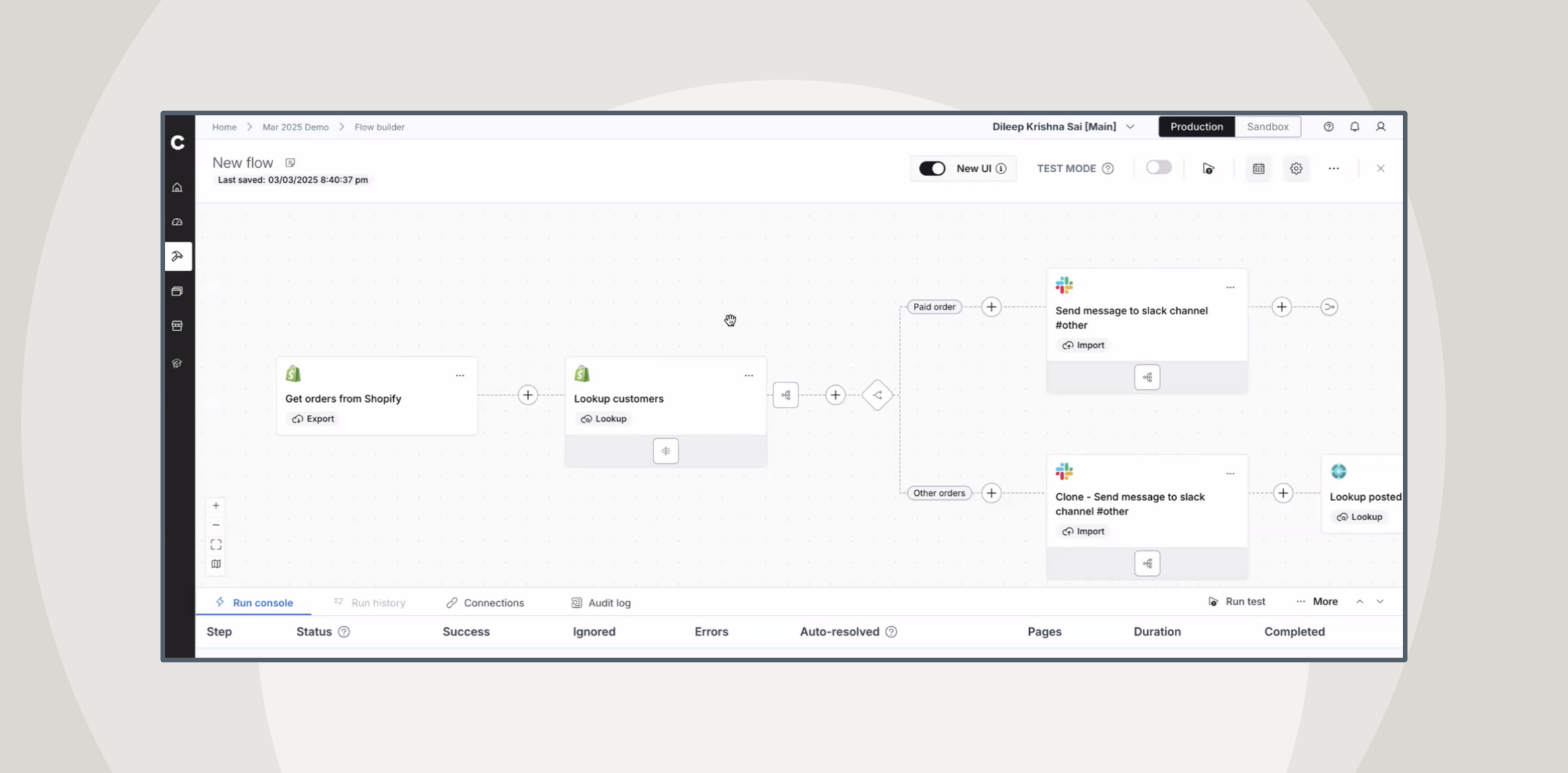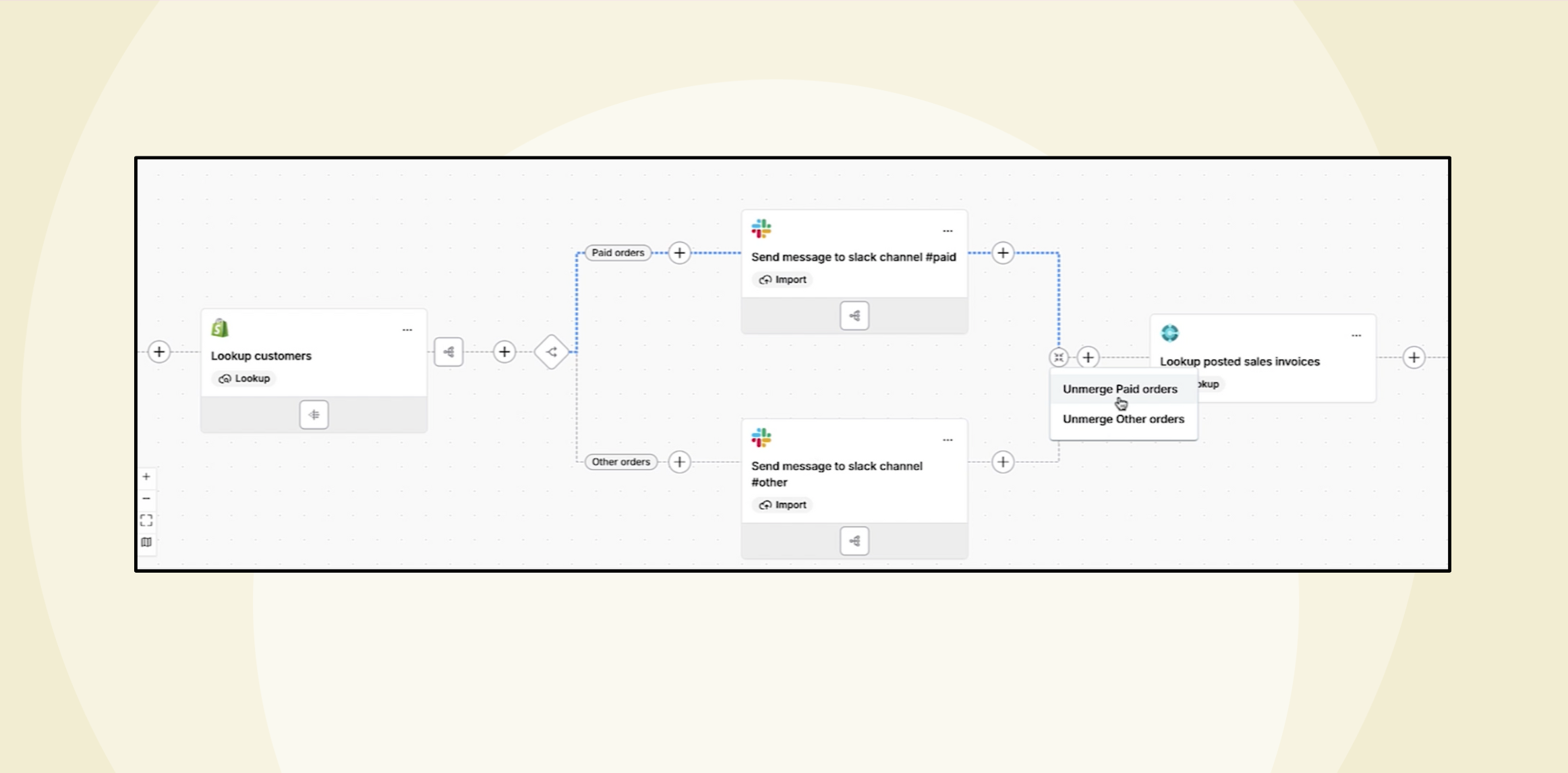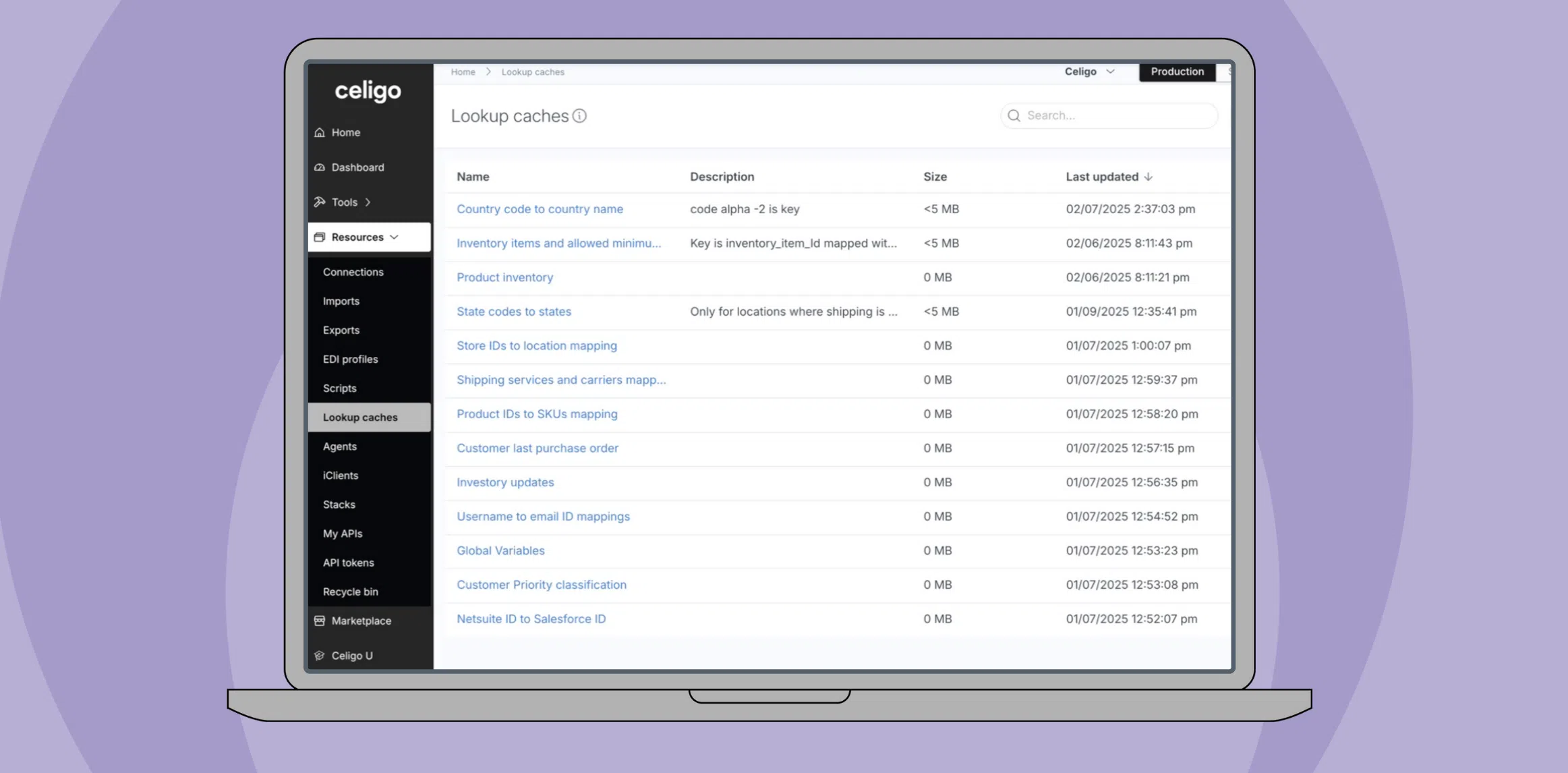Published Mar 6, 2024
Unveiling the March platform release: Enhanced AI functionality, advanced error management, and more
- AI-generated resource descriptions now persist for an entire session.
- You can now assign errors to users and add tags.
- We extended our on-premise agent support to Linux-based operating systems.
We’re excited to introduce the new features and enhancements in our March platform release. Among the many improvements, we’d like to spotlight three key updates that we believe will significantly benefit our users.
AI-enhanced productivity
Our primary objective with AI integration is to boost productivity. A focal point of our efforts is to bridge knowledge gaps, enabling more users to become builders through AI-augmented development.
Earlier this year, we launched “Resource descriptions”, a feature that instantly generates plain language descriptions of imports, exports, and flows. This feature has eliminated the need for hours of deciphering complex flow logic, providing immediate understanding of an integration’s business purpose. It’s particularly useful for those less familiar with the platform, offering a clear breakdown of business logic, including transformations, mappings, and more. This functionality has multiple benefits:
- It facilitates understanding of a resource created months ago, eliminating the need for tedious configuration checks.
- It enables seamless transition of integrations when a team member departs, reducing dependency on manual documentation efforts.
- It provides leadership teams with high-level summaries without the necessity for diving into intricate details.
- It ensures smooth transfer of integrations to and from services and partner teams, maintaining confidence that users with varying degrees of platform knowledge will easily understand the resources.
This feature has been instrumental in training Celigo’s AI on tens of thousands of text-based descriptions, laying a robust foundation for providing guidance to builders regardless of their level of technical expertise.
In our March release, we have enhanced this functionality. AI-generated resource descriptions now persist for an entire session in integrator.io. Users can scroll through the Flow builder, edit exports, perform other key tasks, and reference the resource description window simultaneously, ensuring easy access to critical information without disrupting their workflow.
We’ve also added AI-powered filter rule creation which will streamline filter rule creation using the Celigo AI-powered input section, which turns plain language prompts into precise filter rules, simplifying complex workflow development.
Streamlined error management
Error management aims to reduce the cost of exceptions. We have focused on streamlining error handling with user-defined rules to automate error resolution for specific error types, statuses, and conditions.
The March release introduces the ability to assign errors to users and add tags. This new feature eliminates the need for manual coordination, enhancing productivity and operational flow. Critical errors can be quickly identified, prioritized, and directed to the right team members for speedy resolution. These team members are alerted via email, with a link redirecting them to integrator.io where they can analyze and troubleshoot the error.
Connectivity to on-premise systems
We have also extended on-premise agent support to Linux-based operating systems. Customers can now install the agents on Linux servers or machines to facilitate interactions with systems or applications. Initially, we will be supporting Redhat, Fedora, and CentOS, with Amazon Linux 2, Ubuntu, and Debian following shortly.
These highlights only scratch the surface of our March release. For more details on these and all the other exciting updates, consult the release notes. We’re committed to driving efficiency, integration, and data-driven decision-making, and we’re confident that these updates will significantly contribute to achieving these goals.




